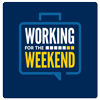Episode 201 – The State of Banking
On this episode of the Business and Society podcast, faculty from the Ross School of Business and Institute for Social Research at the University of Michigan discuss the state of banking from an economic, policy, and consumer perspective. They explore mergers, rising inflation, consumer trust in banks, the 2023 bank failures, and more.
For a majority of the podcast, guests Jeremy Kress, assistant professor of business law at Michigan Ross, and Joanne Hsu, director of the surveys of consumers and a research associate professor at U-M's Institute for Social Research, focused on the overall state of the economy and how banks play a role in shaping both business and consumer participation in the overall marketplace. Key challenges they expressed surrounded topical issues such as rising interest rates, bank reputations, and industry consolidation.
Jeremy Kress has a unique insight into the state of banking as he recently advised the Department of Justice on bank mergers. The challenges he sees are more of a larger question of what consumers, policymakers, and businesses want their banks to be.
“Big banks saw record high profits during the pandemic, at a time when so many in society were suffering. I think that’s reflective of the fact that big banks have become so disconnected from the mainstream economy as they focus on activities like trading and wealth management and less on traditional banking — taking deposits, making mortgage loans, car loans, and small business loans,” said Kress. “This moment is an opportune time to ask, what do we want our banks to be? Do we want them to be trading desks that move money for hedge fund clients, or do we want them to power the growth of the real economy by lending to entrepreneurs and families?”
Another major focus of the discussion was the effects of polarization. There are many differences of opinion on the current state of banking. Depending on an individual’s party line, news sources, or common conceptions, they may have different sentiments toward the industry and its success or failure. In her research with the University of Michigan Survey of Consumers, Hsu has witnessed how increases in political polarization have affected attitudes toward the presence of promise and peril in the banking industry. In a survey that has data going back to the 1940s, they are able to see the rise in polarization and some impactful effects on sentiment toward the financial industry.
“Political polarization absolutely blurs the view and does so more now than it did 10 or 15 years ago. Our survey has consistently collected political party information over the last two administrations, and consumers who belong to the party that holds the white house tend to have higher levels of positive sentiment and more favorable views of inflation than members of the opposite party,” said Hsu. “However, moderates are always in the middle, and moderates are spot on the national average. We measure political identification at least once an administration, and this is what we’ve always seen. The partisan gap used to be smaller, but all in all, it doesn’t affect the national mood because we always see moderates in the middle.”
To close the conversation, the panel tackles what the future state of banking looks like and what lessons can individuals and businesses can learn from current trends and issues. Kress and Hsu both discuss how our everyday interactions with banks may change and how needs like housing and credit may be affected.
Have thoughts about topics we should cover?
Send us an email at baspodcast@umich.edu.
Want to hear more from Ross students, faculty, and alumni?
Check out more of our podcasts.
 Business Beyond Usual: Full-time MBA students at Michigan Ross tackle burning issues on campus and the world beyond. In every episode, the student hosts discuss a topic of importance for current and prospective students through interviews with current students, alumni, faculty, and administrators.
Business Beyond Usual: Full-time MBA students at Michigan Ross tackle burning issues on campus and the world beyond. In every episode, the student hosts discuss a topic of importance for current and prospective students through interviews with current students, alumni, faculty, and administrators.
 Working for the Weekend: A deep dive into the daily life of part-time MBAs at Michigan Ross. Weekend and online MBA students discuss their experiences and advice for prospective and current students.
Working for the Weekend: A deep dive into the daily life of part-time MBAs at Michigan Ross. Weekend and online MBA students discuss their experiences and advice for prospective and current students.
About the participants
Hosts and Producers: Jeff Karoub and JT Godfrey
Guests: Jeremy Kress and Joanne Hsu
Audio Engineer: Jonah Brockman







